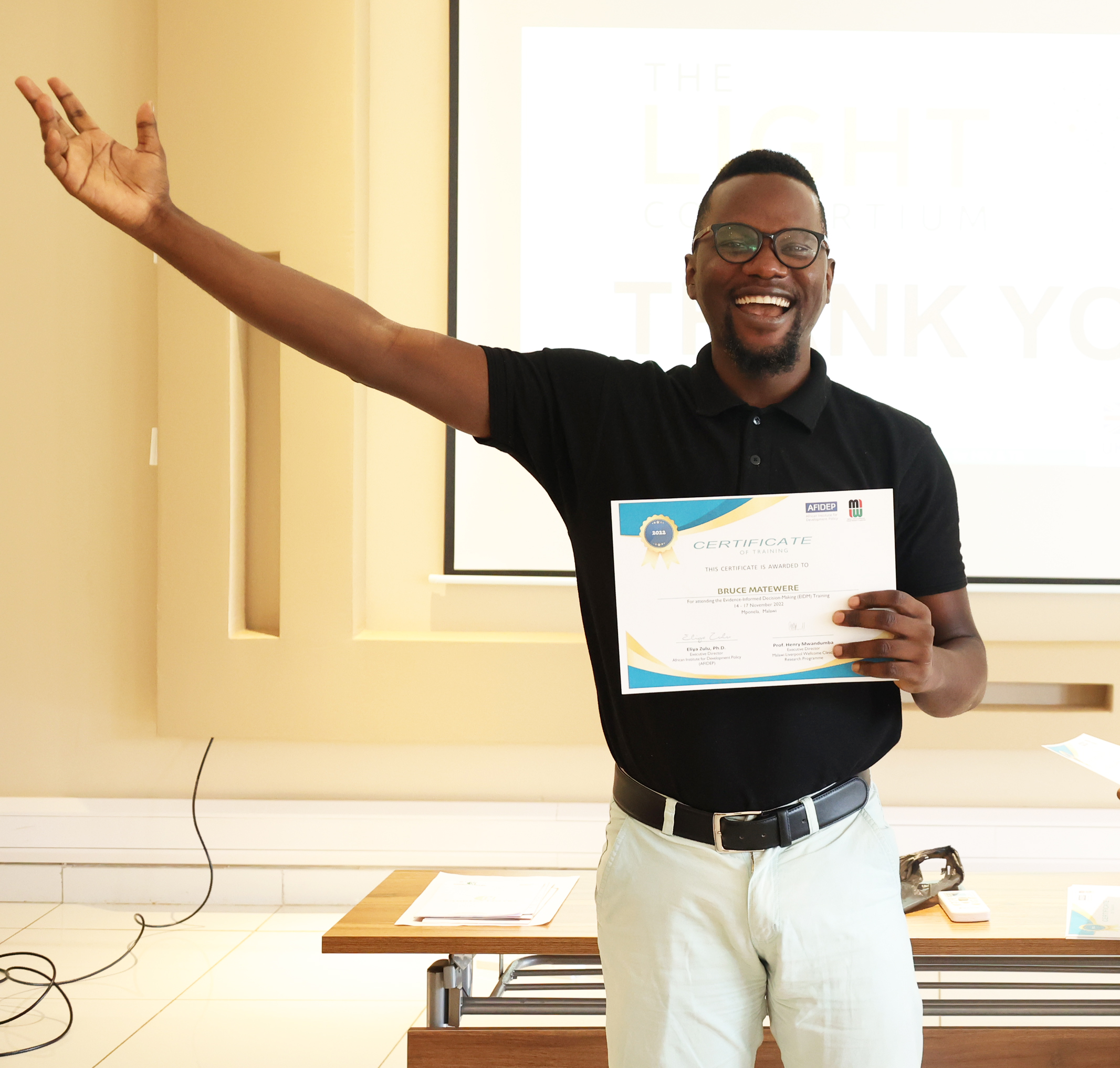Blogs

From 14 to 17 November 2022, researchers of the African Institute for Development Policy (AFIDEP), as part of the Leaving no-one behInd: transforming Gendered pathways to Health for TB (LIGHT) consortium, trained Malawian stakeholders in civil society and government working to prevent and end tuberculosis (TB) on evidence-informed decision-making (EIDM).
The LIGHT consortium aims to provide evidence on gender-sensitive pathways and approaches to help stop the spread of TB.
We caught up with Bruce Matewere, Executive Director of Paradiso TB Patients Trust following the training to discuss its value and potential impact on his work.
Among the first things one learns in Economics 101 is opportunity cost – whether it is time or money, there is something else you could be doing or have if you do decide on a particular thing. Therefore, given all you could do, why did you find it important to be trained on EIDM?
I was interested in the subject because I had been learning how to draft and develop a policy brief based on evidence from YouTube tutorials. I really wanted the chance to learn in a setting where I could ask questions and where the information was tailored to my context.
What nugget, tip, or insight from this training has impacted your outlook, and how would you apply it to your day-to-day job?
Evidence need not always be scientific; it can instead be any available facts, including expert opinion, even though it is less reliable than other types of evidence.
Specifically in your day-to-day job with regard to TB prevention and care, based on your experience, what would you consider the most important intervention we need now to help curb the spread and reduce the number of deaths?
Definitely, post-TB care. A lot of post-TB patients are dying, suffering from complications and activity limitations when they can be assisted, and their health improved.
How will the EIDM training you’ve received contribute towards achieving that?
I serve as the project lead for the Post-TB Disability project, which the National Organisation of Nurses and Midwives of Malawi, LHL International, and my organisation are implementing. The project ends in December 2022, but we have a no-cost extension that lasts until April or May. We were looking for the best way to present our findings and learnings to important policymakers and partners, and I believe a policy brief is an approach we will definitely try out.
The LIGHT consortium, based on the evidence, emphasizes a gendered approach to end TB. Adult men account for 58% of TB cases in Malawi based on 2021 figures with cascading effects for everyone including women and children. What is your experience of this gender gap in TB while working to end the disease?
Although I do not have exact statistics, in my experience, women tend to access TB services more frequently than men do. This is evident even in our TB clubs, where women’s membership is slightly higher than men’s. This indicates that women and men use services differently since all our members are former TB patients.
What are your recommended avenues to address this gap, and how is your engagement with the LIGHT Consortium supporting your work?
I agree with the LIGHT consortium that a gender-specific strategy would be the best way to increase men’s access to TB services. Our collaboration with the LIGHT consortium is assisting us in our efforts because their conclusions and suggestions will have an impact on how we can implement a gendered strategy in TB programming, which is currently almost non-existent.
This is the first of a two-part interview series.

